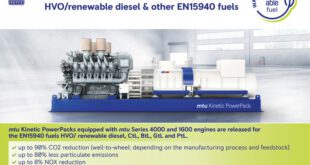A perfect storm of science, media fascination, and government has propelled a new word into the lexicon of English speakers around the globe. We all know it and we all have been affected by its implications regardless of how much we may actually know about the issue. That word is “green”; the color that’s been marketed to invoke feelings of growth, nature and the planet, and beginnings.
“Green” can be easily defined in its simplest terms, but the ideology that has been built around its presumed identity is sometimes rather confusing. Simply put, “green” refers to industry, product, and lifestyles have been created as a response to climate change. While a simple definition explains at the basic level, “green” is evolving into a much bigger idea.
Our problem is that “green” is beginning to express more talk than it is action. “Green” is now used to push product rather than solve problems; creating an entirely new industry of clean energy and leaving behind the products and technology that improve the technology we already have.
Divisions among the cultural landscape are visibly seen around the world with regards to going “green”. While some have campaigned and fought hard to push new energy creating technologies, something has convinced many to believe that this method is not the answer to potential world problems, thus leading to a mental battle ground of those who care and those who do not.
Let’s take a step back and remember that “green” is still a fairly new issue that hasn’t even been fully developed. The divisions caused by trying to define “green” is being created in large part because of businesses, who otherwise would never take an interest, are now trying to tap into this new and desirable market.
The creation of new technology stemming from the “green” revolution is great for the future of our planet but it doesn’t change or help the problems that we face today. These new technologies do a wonderful job of creating clean, carbon neutral energy but they do nothing to help or improve the dirty and inefficient technology that we already have.
Increased energy efficiency is not a new concept or invention but has simply been hidden under the rug of the other predominant environmentally friendly technology today. As an example, our business of making waste heat recovery condensing economizers allows owners of natural gas and LP boilers to improve their preexisting technology which saves them money as well as precious natural resource. By improving your equipment to function at maximum efficiency, you are creating solutions to problems.
New eco-friendly technology is a needed industry for the future of our planet. Our priorities however, must lie with improving the equipment and technology we are already using so that business can reduce greenhouse gas emissions, reduce resource consumption, and hopefully improve business profits all at the same time. “Green” is king in today’s economy and the sooner your business can be a part of the solution, you’ll be sure to win.
To find out more about how you can save money, reduce C02 emissions and conserve water with a Condensing Economizer visit www.SidelSystems.com. And while you’re there be sure to request our FREE Waste Heat Recovery Video and Info Pack – you’ll be glad you did!
 Alternative Energy HQ solar power for homes, wind energy, and bio fuel issues
Alternative Energy HQ solar power for homes, wind energy, and bio fuel issues






